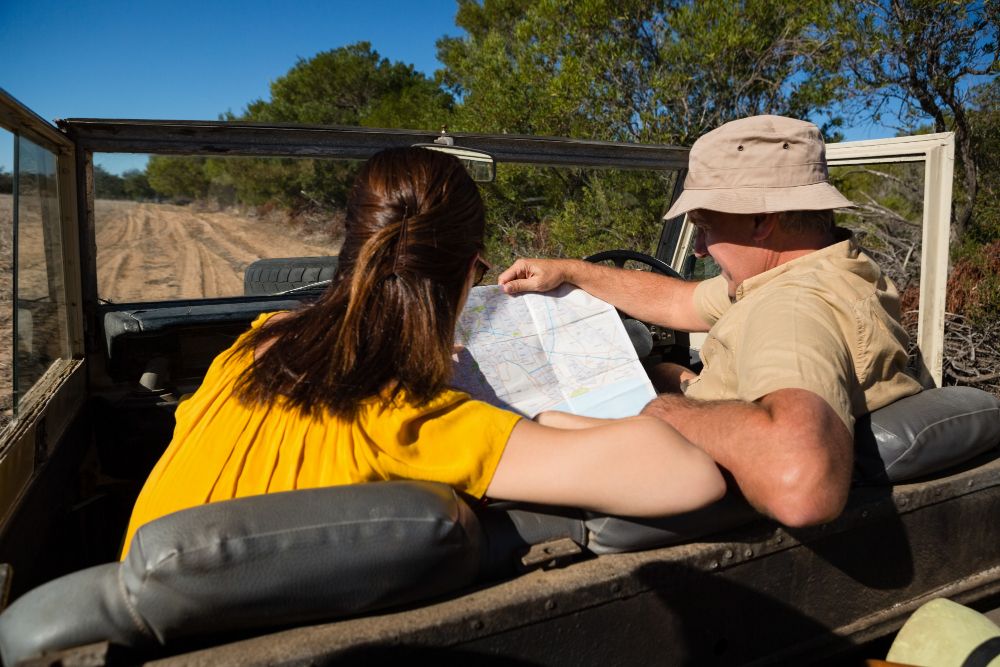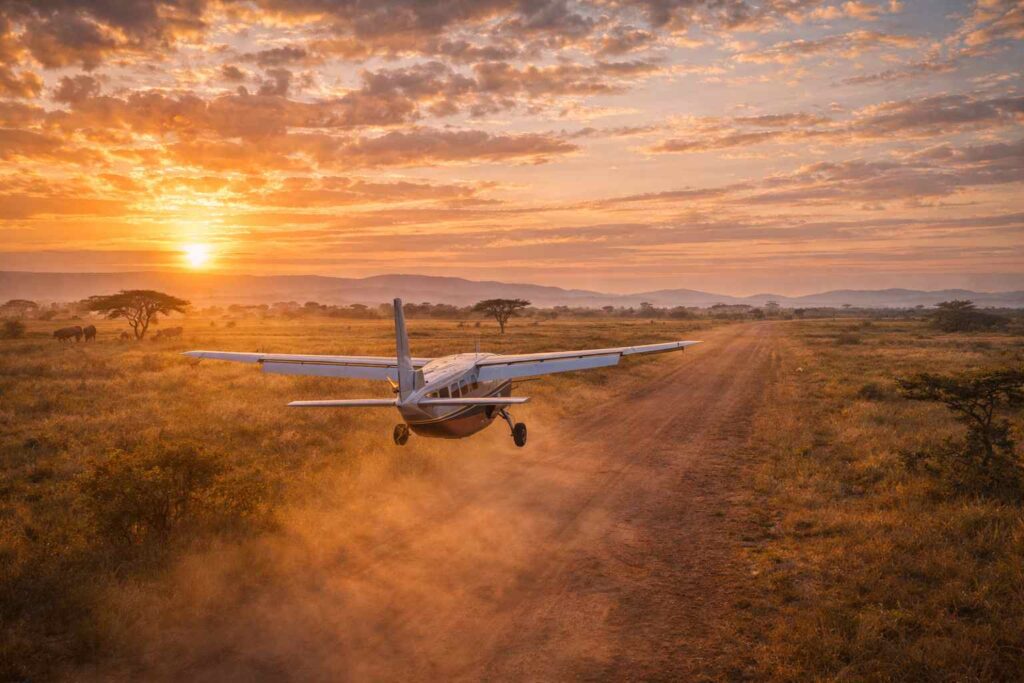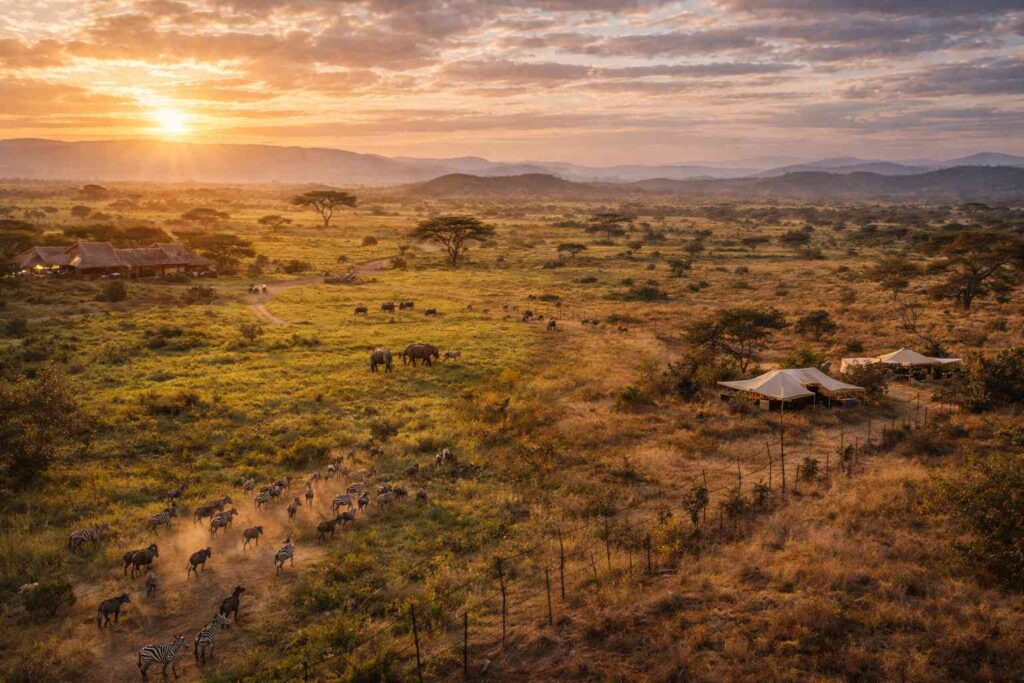Choosing the right type of safari is one of the most important decisions you’ll make when planning your African adventure. Whether you’re drawn to the luxury and ease of a lodge safari, the raw immersion of a mobile safari, or the freedom of a self-drive experience, each option offers a unique way to explore the continent’s incredible wildlife and landscapes. In this guide, we break down the main safari types, their pros and cons, and how to decide which one is right for you.
Understanding your safari style
Before deciding on the logistics, it’s important to reflect on the kind of experience you want. Are you looking for maximum comfort? Do you prefer something more rustic and adventurous? Or are you a seasoned traveler who enjoys total independence?
Your safari style will depend on:
- Your budget
- Travel experience and confidence in remote areas
- Desired level of comfort and amenities
- Type of wildlife experience you’re seeking
- How much time you have
- Whether you’re traveling solo, as a couple, with kids, or in a group
This self-awareness is the key to aligning your expectations with the type of safari that will deliver your dream trip.
Safari lodges: comfort, luxury, and ease
What is a lodge safari?
A lodge safari is the most popular choice for first-time safari-goers and travelers seeking a blend of comfort and close-to-nature experiences. These are permanent structures — often luxurious — located within or near game reserves. Many lodges include beautiful suites, gourmet dining, and expertly guided excursions.
Why choose a lodge safari?
Lodge safaris offer a curated experience where everything is taken care of — from airport transfers and meals to daily game drives. It’s the ideal option for those who want to enjoy the bush without compromising on comfort.
Pros:
- Luxurious or high-comfort accommodations
- Knowledgeable guides and structured activities
- Often located in prime wildlife-viewing areas
Cons:
- Less spontaneity and flexibility
- Can be more expensive than other options
- Some lodges may feel a bit “removed” from raw nature
Best for:
- Honeymooners
- Families
- Luxury travelers
- Safari first-timers
Mobile safaris: adventure with a touch of tradition
What is a mobile safari?
A mobile safari involves moving between various campsites — either with your guide or as part of a small group — typically in tents or semi-permanent camps. These safaris follow wildlife movements and are often conducted in more remote, less-touristy areas.
Depending on the level of luxury, mobile safaris range from rustic fly camps to fully catered setups with hot showers, proper beds, and chef-prepared meals.
Why choose a mobile safari?
For travelers who want to feel deeply connected to nature, mobile safaris offer a raw, authentic experience. These safaris often reach areas that lodge guests never see and can feel like true expeditions.
Pros:
- More intimate connection with nature
- Access to remote and exclusive regions
- Smaller groups and personalized attention
Cons:
- Less permanent infrastructure
- Limited electricity and Wi-Fi
- Can be physically demanding
Best for:
- Adventure seekers
- Wildlife photographers
- Return safari travelers
- Eco-conscious travelers
Self-drive safaris: freedom, flexibility, and independence
What is a self-drive safari?
Self-drive safaris are exactly what they sound like: you rent a vehicle (usually a 4×4) and explore Africa’s national parks and reserves at your own pace. This type is most common in countries with good road infrastructure and safe wildlife areas, like South Africa or Namibia.
Why choose a self-drive safari?
For travelers who love independence and enjoy planning their own routes, self-driving offers unparalleled flexibility. It can also be one of the most budget-friendly ways to go on safari.
Pros:
- Total freedom to set your schedule
- More affordable than guided safaris
- Great for repeat travelers who know the terrain
Cons:
- Requires confidence driving off-road
- No access to professional guides
- More responsibility for planning and safety
Best for:
- Experienced travelers
- Road trip enthusiasts
- Budget-conscious travelers
- Photographers wanting control over timing
Which type of safari is right for you?
Choosing between lodge, mobile, and self-drive depends on your travel preferences, physical condition, and overall goals. Here’s a quick comparison to help guide your choice:
| Feature | Lodge | Mobile | Self-Drive |
|---|---|---|---|
| Comfort | High – luxury lodges and amenities | Moderate – comfortable, but rustic | Varies – depends on personal setup |
| Flexibility | Fixed itineraries, less flexible | Moderate – guided but more adaptable | High – go at your own pace |
| Cost | Higher – includes premium services | Moderate – fewer frills, more value | Lower – budget-friendly but variable |
| Accessibility | Great for first-timers and families | Ideal for adventurers or return visitors | Best for experienced, independent travelers |
| Wildlife immersion | Moderate – less movement between locations | High – camps move with animals | Varies – depends on route and timing |
| Logistics | Easy – all-inclusive and managed | Guided but semi-nomadic | Complex – self-planned and self-driven |
Some travelers choose to combine these styles — starting with a lodge for relaxation, then venturing into mobile camps, and finishing with a self-drive route through a national park.
Final thoughts
There’s no “one-size-fits-all” safari. Whether you want to be pampered in a private lodge, fall asleep under canvas to the sound of lions, or chart your own path through wild terrain, Africa offers a safari experience to match your style. The key is to balance your comfort needs, sense of adventure, and the kind of wildlife encounters you want to prioritize.
FAQs about choosing the right safari type
Solo travelers often find mobile safaris or group lodge tours ideal, as they offer a safe, sociable environment. Some tour operators offer no single supplement and help pair solo guests to avoid extra costs.
Yes, many travelers mix safari types — for example, starting with a lodge stay and then transitioning to a mobile or self-drive safari. This hybrid approach allows for diverse experiences and helps balance comfort, cost, and adventure.
Mobile safaris and private guided lodge safaris are often best for photography. They usually offer smaller groups, more flexible schedules, and guides trained in wildlife photography positioning.
Yes, travel insurance is highly recommended regardless of the safari style. For self-drive safaris in particular, make sure your policy covers 4×4 vehicle use and emergency evacuation from remote areas.
South Africa and Namibia are top choices for self-drive safaris, offering good road infrastructure, clear park signage, and excellent wildlife viewing opportunities in accessible reserves.
Yes — many mobile safaris offer upgraded “luxury tented” options with comfortable bedding, private bathrooms, and full staff. However, it’s important to check accessibility and daily physical demands beforehand.
Absolutely. Most lodges and mobile safari operators can accommodate special diets like vegetarian, vegan, gluten-free, or halal — but you should notify them well in advance.






